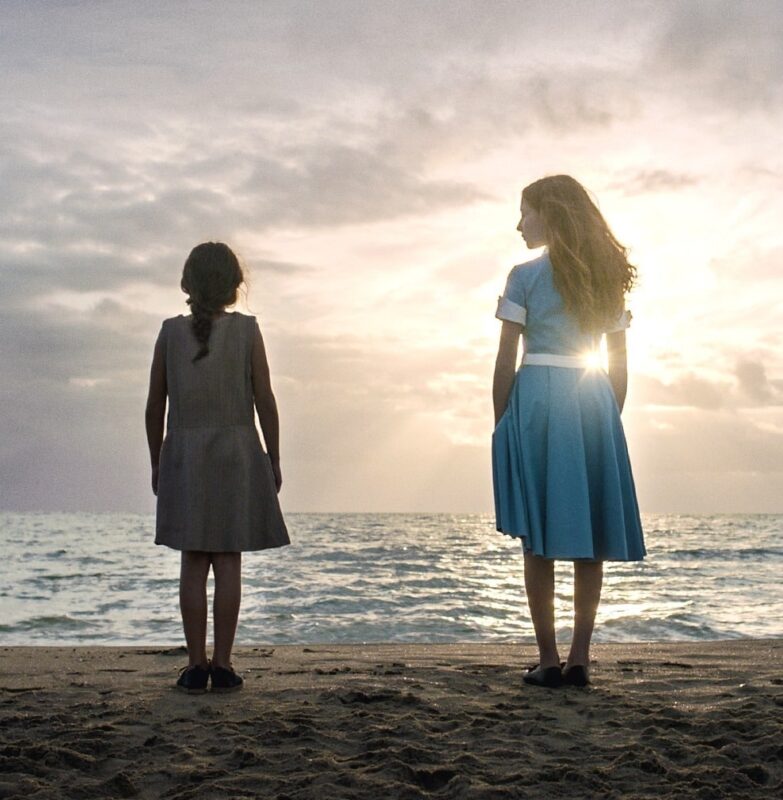The annual festival season is under way, and that means a torrent of foreign films.
Yet the multiplexes these days, at least in Auckland, show fewer English language movies. Instead, they are more likely to be in Mandarin, Hindi, and Tagalog.
Of course, the arthouse cinemas are still devoted to predominantly European productions. A festival merely means the choice expands exponentially, with filmgoers facing a daunting selection of unknown quantities.
First up is the Italian Film Festival, which has started its run in more than 20 locations and cinemas throughout the country, concluding in Waiheke Island next January.
Closely following is the French Film Festival, which travels to 17 centres, with multiple cinemas in some locations. Both festivals offer 20 or more all-new features aimed at a wide range of audiences.
The New Zealand International Film Festival kicks off in July, and has already announced some of its early titles. It usually delivers a large swag from the Cannes Film Festival (May 16-23).
While Cannes is the natural home for potential award-winners, the Italian and French festivals offer more modest fare aimed at domestic audiences in those countries. This may mean sitting through some comedies that defy translation, or obscure dramas and social issues of little interest.
However, there are exceptions. A Girl Returned (L’Arminuta) (Palace Films) is based on a novel by Donatella Di Pietrantonio that reverses the story of last year’s Irish hit, A Quiet Girl.
Instead of being taken from Dickensian poverty into more middle-class circumstances, the just-turned teenage protagonist (Sofia Fiore) is brutally “returned” (the meaning of arminuta) from her adoptive urban family to her peasant birth parents.
In 1975, they eke out a subsistence living in Abruzzo, a barren high-country region east of Rome. The father is abusive and has work in a quarry, while the stressed mother (an unsmiling Vanessa Scalera) has a new baby, no spare beds, and scarcely enough food for yet another mouth, let alone a sophisticated girl with high expectations.
The “returned” girl’s clothing and deportment makes her stand out as an oddity in the village and at school. She is forced to share a bed with her lively younger sister (Carlotta De Leonardis), the only person likely to ease the adjustment to a new life.
Money from the elusive, adoptive mother (Elene Lietti) enables the girls, and their older brother, to escape their predicament with brief, but forbidden, trips to the seaside. While the money is welcome, it’s made clear that there’s no path back to the original family.
That upbringing provides advantages over her rural peers, with hopes of higher education, but she remains a “parcel” child who has been passed on, a key theme in the novel’s social message about loss of identity.
This is a powerful and emotional story that sets a high standard for the festival fare over the next few months.
Rating: Mature audiences. 110 minutes.
CLIPS
Nostalgia
(Palace Films)
Few places in Italy inspire as much trepidation and guarded admiration, at least to outsiders, as Naples. Its narrow streets, crumbling architecture and hidden places are brilliantly exposed, as a successful businessman (Pierfrancesco Favino) returns to see his dying mother after 40 years of living abroad. His past remains a mystery as he explores the places where he grew up, recalls his exploits as a youth, and finds his mother is no longer living in the family home. Instead, it is occupied by surly strangers, and she has been banished to a basement apartment. He moves her to more salubrious surroundings, and his reappearance does not go unnoticed. He learns from the local priest (Francesco Di Leva) that the district, Rione Sanità, lies under the shadow of Badman (Tommaso Ragno), a crime boss who was once the businessman’s best friend and the reason he fled to Africa. As the story unfolds, his fate becomes more obvious, even as he plans to bring his wife from Cairo to join him. Based on a novel by Ermanno Rea, and directed by Mario Martone.
Rating: Mature audiences. 118 minutes.
Polite Society
(Universal)
This hyperactive mashup of spy thriller, martial arts movie, Bollywood parody, and science fiction fantasy, sends a British-Pakistani family’s domestic dramas into orbit. Though grounded as a story of teenaged girls trying to undo an arranged marriage plot, its appeal is reminiscent of Bend it Like Beckham. Sisters Priya Kansara (Bridgerton) and Ritu Arya are both dreamers, but of differing dispositions. The former wants to be a stuntwoman, and employs all of her energies to foil the older sister’s wedding plans, particularly when it’s apparent that sinister forces are at work. The action scenes are ludicrously violent for the improbable plot and cartoonish characters, which I suspect is director Nida Manzoor’s point about breaking as many conventions as possible.
Rating: Mature audiences. 104 minutes.
Armageddon Time
(Amazon Prime)
Family life doesn’t appeal to a sensitive 11-year-old (Michael Banks Repeta) growing up in the New York district of Queens. His Jewish parents (Jeremy Strong and Anne Hathaway) lament his lack of drive compared with his older brother (Ryan Sell). It gets worse when the younger one gets into trouble with his closest friend (Jaylin Webb), whose life is even harder due to racial discrimination. Writer-director James Gray, in his debut feature, draws on autobiographical experience for the story’s authenticity, which is underlined by the casting of Anthony Hopkins as the grandfather who provides alternative advice on what it means to be a grown-up. The chemistry with his grandson contrasts with the lack of credibility in some of the lesser characters, including Donald Trump’s father Fred, who sponsors a posh private school in the neighbourhood. The connection with later events is presaged in the setting of events during the 1980 presidential election won by Ronald Reagan.
Rating: Mature audiences. 115 minutes.

Reader Interactions